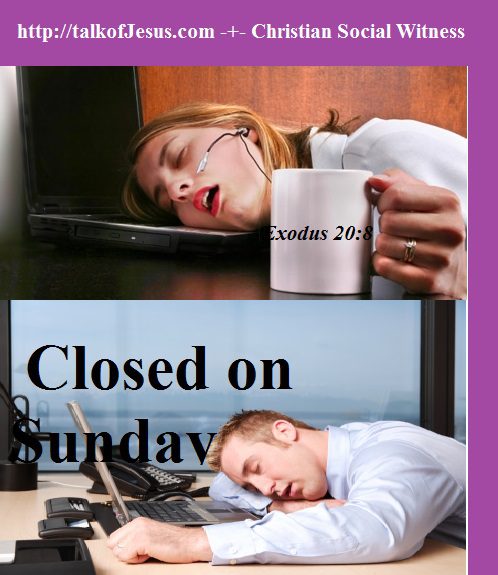Dr. Luke retells two stories of witnesses about Jesus and the Sabbath. (We should consider that the Good News is witness of the message of salvation, though the story of Jesus is not always chronological.) The time of these witnessed stories is not so important as the point.
Returning (for this) to Luke 6:
Jesus Is Lord of the Sabbath
6 On a Sabbath, while he was going through the grainfields, his disciples plucked and ate some heads of grain, rubbing them in their hands. 2 But some of the Pharisees said, “Why are you doing what is not lawful to do on the Sabbath?” 3 And Jesus answered them, “Have you not read what David did when he was hungry, he and those who were with him: 4 how he entered the house of God and took and ate the bread of the Presence, which is not lawful for any but the priests to eat, and also gave it to those with him?” 5 And he said to them, “The Son of Man is lord of the Sabbath.”
(We will return to this example of Jesus and David in a moment.)
A Man with a Withered Hand
6 On another Sabbath, he entered the synagogue and was teaching, and a man was there whose right hand was withered.7 And the scribes and the Pharisees watched him, to see whether he would heal on the Sabbath, so that they might find a reason to accuse him. 8 But he knew their thoughts, and he said to the man with the withered hand, “Come and stand here.”And he rose and stood there. 9 And Jesus said to them, “I ask you, is it lawful on the Sabbath to do good or to do harm, to save life or to destroy it?” 10 And after looking around at them all he said to him, “Stretch out your hand.” And he did so, and his hand was restored. 11 But they were filled with fury and discussed with one another what they might do to Jesus.
“They were filled with fury and ‘discussed…’”
Nothing like the mixing of politics and religion, but that is the background and subject of these discussions; therefore let’s once again take on this controversy of Sundays, Sabbaths and the time and place of worship of God. [The ‘Sundays’ link points to my earlier post on Exodus: Remember the Sabbath to keep it holy.]
Richard A Horsley, in ‘Scribe, Visionaries, and the Politics of Second Temple Judes,’ points out: The attention to conflict, whether with external imperial powers or internally between scribes and priest or between wealthy elites and others, results in a story of endless power struggles…
Horsley continues: ‘a credible picture of the diversity of Judaism in Hellenistic Palestine emerges… ‘conflict: this time between the priestly aristocratic rulers of the Judean temple-state and their scribal retainers…
Jesus lived under the watchful eyes of several opposing religious and political views, the two mentioned here: Scribes and Pharisees. Perhaps your church has a ‘scribe’ or ‘pharisee’ who would go on and on over endless controversies of how and when to worship God.
It’s certainly not only the Saturday vs. Sunday controversy or what ‘Christians’ ought to do or ought not do on ‘the Lord’s Day. As more recent controversies: “The State shouldn’t sell liquor on Sunday. The mall used to be closed on Sunday. God help us if we don’t have football and other sports to watch on Sunday!”
No, the Sabbath controversy (artificial and particular as it can be) is not new and sometimes results in ‘christians’ being ‘filled with fury’ or resigned to unrighteousness. Jesus encountered such controversies every day. In fact, like conservatives and liberals, the religious and political types enjoyed such ‘discussions’ as a part of their ongoing emphasis of beliefs. (Nothing new under the sun.)
When the Bible (Hebrew Bible, Orthodox Bible, Catholic Bible or Protestant Bible – {Get the idea?}) mentions Scribes, Pharisees, Priests or other religious officials; understand that these men had ongoing differences in their views of God and worship.
The simplicity of Jesus approach to the Sabbath (or Sunday) is evident enough in Luke 6:9 KJV
I will ask you one thing; Is it lawful on the sabbath days to do good, or to do evil?
Jesus answer is so intuitive: It it lawful to do good seven days a week and 365 days every year; and unlawful to do evil on ANY day.
Doing good is not work and failing to do good is evil.
Jesus healed a man on the Sabbath and you would not expect your doctor to take Sunday off if you had a heart attack or were injured in an accident on the way home from church or the Sunday afternoon sporting event.
In the earlier example, Jesus addresses the Sabbath ‘work’ controversy a little differently. (Imagine these men following you and your family to a restaurant after church.) Jesus and His Disciples were hungry and broke open some grain in a field as they walked through it (perfectly legal: Deuteronomy 24:19-22). The question of the Pharisees for these poor and hungry sojourners or travelers (Jesus and the Disciples) was ‘should you prepare and eat food on the Sabbath?’
Jesus then uses the example of bread prepared for the Temple of God and an incident with King David.
 Luke 6:4 KJV How he went into the house of God, and did take and eat the shewbread, and gave also to them that were with him; which it is not lawful to eat but for the priests alone?
Luke 6:4 KJV How he went into the house of God, and did take and eat the shewbread, and gave also to them that were with him; which it is not lawful to eat but for the priests alone?
Let’s examine this less-familiar reference a moment.
Exodus 25:30 And you shall set the bread of the Presence on the table before me regularly.
Leviticus 24: 5 “You shall take fine flour and bake twelve loaves from it… 6 And you shall set them in two piles, six in a pile, on the table of pure gold before the Lord… 7 …as a memorial portion as a food offering to the Lord. 8 Every Sabbath day Aaron shall arrange it before the Lord regularly… 9 And it shall be for Aaron and his sons, and they shall eat it in a holy place, since it is for him a most holy portion out of the Lord’s food offerings, a perpetual due.”
David is not a Priest or a Levite of the line of Aaron.
1 Samuel 21
David and the Holy Bread
21 Then David came to Nob to Ahimelech the priest. And Ahimelech came to meet David trembling and said to him, “Why are you alone, and no one with you?” 2 And David said to Ahimelech the priest, “The king has charged me with a matter and said to me, ‘Let no one know anything of the matter about which I send you, and with which I have charged you.’ I have made an appointment with the young men for such and such a place. 3 Now then, what do you have on hand? Give me five loaves of bread, or whatever is here.” 4 And the priest answered David, “I have no common bread on hand, but there is holy bread—if the young men have kept themselves from women.” 5 And David answered the priest, “Truly women have been kept from us as always when I go on an expedition. The vessels of the young men are holy even when it is an ordinary journey. How much more today will their vessels be holy?” 6 So the priest gave him the holy bread, for there was no bread there but the bread of the Presence, which is removed from before the Lord, to be replaced by hot bread on the day it is taken away.
Or course, the Disciples are not Levite. Neither are Jesus and the Disciples in the holy place of the Temple. Yet the Pharisees did not recognize that they were in the Presence of Holiness.
One earlier instance of the Hebrew use of this word for the Bread of the Presence.
18 And Melchizedek king of Salem (where Jerusalem now stands) brought out bread and wine. (He was priest of God Most High.) 19 And he blessed him and said,
“Blessed be Abram by God Most High,
Possessor of heaven and earth;
20 and blessed be God Most High,
who has delivered your enemies into your hand!”
And Abram gave him a tenth of everything.
Jesus is our Redeemer and High Priest.
Later, Jesus would say, “Before Abraham was, I AM.” (See John 8.)
Here Jesus closes all discussion on the Sabbath controversies of the Scribes and Pharisees with a remarkable statement.
Luke 6:5 KJV And he said unto them, That the Son of man is Lord also of the sabbath.
Jesus’ most frequent reference of his person is “son of man,’ that is: huios anthrōpos. How bold a statement for Jesus to say that He lord [kyrios] also of the sabbath.
Jesus IS Lord.
He IS either your Lord…
the Son of Man, who is Lord even over the days of the week – yes, even our measured days
OR He will be Lord at your Judgment.
Will you acknowledge Christ Jesus as your Savior and Redeemer?
Abraham and Lot worshiped the Lord after the destruction of Sodom. God judged the sinful men and sinful women of those cities, yet saved Lot and his children. He would save you, also… before the wrath of the Lord rains down on you and it is too late.
Worship Him.
The Son of Man is Lord also of the Sabbath. Is He also your Lord and Savior?


Leave a Reply